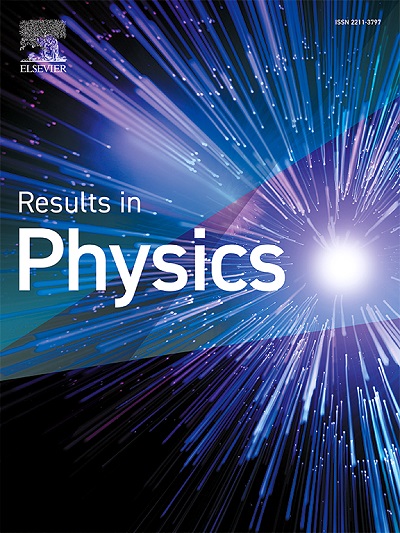耗散空腔-磁子系统中的类手性对称非常规磁子封锁
IF 4.4
2区 物理与天体物理
Q2 MATERIALS SCIENCE, MULTIDISCIPLINARY
引用次数: 0
摘要
我们提出了一个理论上通用且可控的框架,用于在一个由钇铁石榴石球和跨线微波电路组成的腔磁系统中实现类似手性对称的非常规磁子封锁,其中腔模由双光子驱动场驱动。在双光子场的驱动强度和相位的最佳条件下,我们观察到磁子阻滞即使在高耗散情况下也表现出类似手性的对称性。然而,相干耦合的引入会导致能级分裂,抵消耗散耦合引起的能级吸引力,从而减弱封锁效应。此外,我们还阐明,耗散耦合产生的能级吸引力与耦合系数的相位变化无关。我们的方法为可调单磁子源和量子信息处理提供了广阔的应用前景。本文章由计算机程序翻译,如有差异,请以英文原文为准。
Chirally-symmetric-like unconventional magnon blockade in a dissipative cavity-magnon system
We present a theoretically versatile and controllable framework for realizing chirally-symmetric-like unconventional magnon blockade within a cavity-magnon system composed of a yttrium iron garnet sphere and a cross-line microwave circuit, where the cavity mode is driven by a two-photon driving field. Under optimal conditions regarding the driving strength and phase of this two-photon field, we observe that magnon blockade exhibits chiral-like symmetry even in high-dissipation scenarios. However, the introduction of coherent coupling leads to energy level splitting that counteracts the energy level attraction induced by dissipative coupling, thereby diminishing the blockade effect. Furthermore, we clarify that the energy level attraction resulting from dissipative coupling remains invariant with respect to variations in the phase of this coupling coefficient. Our approach offers promising applications for tunable single-magnon sources and quantum information processing.
求助全文
通过发布文献求助,成功后即可免费获取论文全文。
去求助
来源期刊

Results in Physics
MATERIALS SCIENCE, MULTIDISCIPLINARYPHYSIC-PHYSICS, MULTIDISCIPLINARY
CiteScore
8.70
自引率
9.40%
发文量
754
审稿时长
50 days
期刊介绍:
Results in Physics is an open access journal offering authors the opportunity to publish in all fundamental and interdisciplinary areas of physics, materials science, and applied physics. Papers of a theoretical, computational, and experimental nature are all welcome. Results in Physics accepts papers that are scientifically sound, technically correct and provide valuable new knowledge to the physics community. Topics such as three-dimensional flow and magnetohydrodynamics are not within the scope of Results in Physics.
Results in Physics welcomes three types of papers:
1. Full research papers
2. Microarticles: very short papers, no longer than two pages. They may consist of a single, but well-described piece of information, such as:
- Data and/or a plot plus a description
- Description of a new method or instrumentation
- Negative results
- Concept or design study
3. Letters to the Editor: Letters discussing a recent article published in Results in Physics are welcome. These are objective, constructive, or educational critiques of papers published in Results in Physics. Accepted letters will be sent to the author of the original paper for a response. Each letter and response is published together. Letters should be received within 8 weeks of the article''s publication. They should not exceed 750 words of text and 10 references.
 求助内容:
求助内容: 应助结果提醒方式:
应助结果提醒方式:


